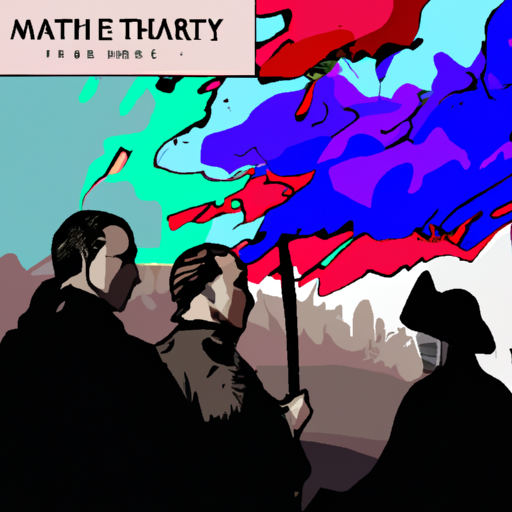History of Chinese Naming Traditions: How Chinese Name their Children
Delve deep into the annals of Chinese custom to expose the secrets of how generations have christened their progeny throughout the ages! Unearth the ancient practices that have been passed down for centuries, and discover all that is known about the way families have named their children.

Tracing back centuries, Chinese naming customs have been an intriguing exploration into the culture and people of China. With generations engaging in elaborate and purposeful rituals to name their children, traditional Chinese names are laden with significance. Every character is carefully selected for its individual connotation, while the sound and placement of the characters within the name are also taken into consideration. Delving into this practice can be a captivating journey into the depths of Chinese culture.
.
Introduction

Centuries ago, Chinese names were composed of two characters and often taken from ancient texts or poetry. At the time, the first character was a symbol of family lineage, while the second signified a desired characteristic for the child. Nowadays though, many families opt for more modern names that have no special meaning. Despite this, traditional Chinese naming customs are still an integral part of Chinese culture and identity.
– Exploring the Historical Origins of Chinese Naming Practices
An enigma of complexity and dynamism, Chinese naming practices have been an essential part of the country’s culture for centuries. From given names that encompass a parent’s wish for their child to family names that may be derived from places or even animals, these conventions are a reflection of the nation’s history and identity. Beyond given names, courtesy names – often poetic in nature – were adopted after adulthood, while nicknames were used to capture unique aspects of each individual’s character. Ultimately, Chinese naming practices continue to be an important part of today’s society, just as they were in ancient times.
– Examining the Role of Ancestral Worship in Chinese Naming Traditions
For centuries, Chinese culture has been heavily influenced by the veneration of ancestors. Naming customs have long been connected to these ancestral beliefs, with parents giving their children names that reflect the family’s heritage and honor their deceased relatives. In traditional families, it was commonplace to name a child after an ancestor as a way of showing respect and ensuring the continuation of their legacy.
In modern times, many Chinese families still follow this practice when naming their little ones. Names may be chosen to commemorate an ancestor’s profession or social standing, such as “Xiao Ming” (Little Bright) for a scholar or “Wei Wen” (Protector of Culture) for a soldier. Other families may opt for more abstract names that still pay homage to their ancestors, including “Yuanyuan” (Remembrance) or “Yongxin” (Forever Trust).
Exploring the role of ancestor worship in traditional Chinese naming customs can help us gain insight into the culture and values of the Chinese people. It is evident that honoring one’s ancestors is deeply ingrained in this society and serves as a powerful connection between past generations and present day families. Understanding how this belief system shapes modern day life in China can provide valuable understanding into its rich history and culture.
– Understanding the Cultural Significance of Chinese Surnames
The Chinese surname has a long and captivating tale to tell, reaching back thousands of years. Its cultural significance is an essential part of understanding the importance of Chinese surnames. In ancient China, the family’s social status and origin was believed to be represented by their surname. Thus, clans would take on different surnames in order to differentiate themselves from others.
Names were also selected based on their meaning or sound. For instance, some names had positive connotations such as “Lucky” or “Prosperous”. Others were chosen for their phonetic qualities, with some being linked to power and strength while others were associated with gentleness and grace. Therefore, various Chinese surnames can have multiple interpretations depending on how they are pronounced.
Over time, Chinese surnames have become more than just symbols of social position and heritage; they are now seen as a fundamental aspect of Chinese identity. They are often used to demonstrate pride in one’s culture and ancestors, as well as to honor them by passing down their name through generations. As a result, Chinese surnames remain an important part of understanding the cultural relevance behind them today.
– Investigating the Evolution of Chinese Names Over Time
For centuries, the Chinese have developed a plethora of intriguing naming customs. Tracing the evolution of these names can provide a fascinating glimpse into this ancient culture and its traditions. In times past, only one name was typically used, either given at birth or acquired later in life. This single name could signify status or occupation – for example, “Wang” meaning king or “Zhang” meaning farmer.
During the Zhou Dynasty (1046–256 BC), two-character surnames became popular, often derived from nature and reflecting an individual’s traits or personality; such as “Yuan” meaning far away and “Gao” meaning tall. As the Han Dynasty (202 BC–220 AD) dawned, most people adopted three-character names composed of their family name followed by two given names. These characters were often chosen to bestow good wishes on the child; for instance, “Xiao” signifying filial piety or “Ming” meaning bright. Additionally, some families began using multiple surnames to denote higher social standing; for example, four surnames instead of just one for noble families.
Today’s Chinese still use three-character names containing their family name followed by two given names; though many are opting for more creative alternatives – combining words from different languages or using numbers in place of characters – to create unique monikers for their children. Whichever type of name they choose, these new generations continue to honor the rich history and traditions of China through their distinctive naming conventions!
– Analyzing the Impact of Imperial Dynasties on Chinese Naming Customs
Throughout the ages, Chinese naming conventions have been profoundly shaped by the various dynasties that have ruled over the land. Each era brought with it a unique set of values and culture which were reflected in the names given to children.
Dating back to the Shang Dynasty (1600-1046 BC), two-character names based on nature were used as a way of bringing good fortune and prosperity. This was followed by the Zhou Dynasty (1045–256 BC) during which three-character names, including a surname at the beginning and two given names at the end, became popular as ancestor worship increased in importance.
The Qin Dynasty (221–206 BC) saw an effort towards standardization, with all families adopting the same surname – Zhao (赵). Subsequent dynasties such as Han (206BC – 220AD), Tang (618–907 AD), Song (960–1279 AD), Yuan (1271–1368 AD), Ming (1368–1644 AD) and Qing (1644–1912 AD) each brought their own trends in naming conventions, from poetic four-character names during Tang to women taking on their husband’s surnames upon marriage during Qing.
In sum, China’s imperial dynasties have had an undeniable influence on how parents chose to name their children throughout history.
conclusion

Since ancient times, Chinese parents have held a deep reverence for the tradition of bestowing names upon their offspring. Taking into account the sound and significance of each character, as well as the order of birth and desired future prospects, the selection of an appropriate name is both a complex and highly emotive process. Even in modern times, this practice remains an integral part of Chinese culture.
.
Some questions with answers
Q1. What is the history behind Chinese naming conventions?
A1. The Chinese traditionally believed that names held great power, so they chose them carefully. In ancient times, children were given two names: a birth name and a courtesy name. The birth name was used in everyday life, while the courtesy name was used when dealing with formal situations. It was also common to give a child an auspicious name to bring good luck and fortune.
Q2. How has the naming process changed over time?
A2. In modern times, most Chinese names consist of three characters: the surname (xìng), followed by a given name (míng) and then a generational or courtesy name (hào). However, many parents are now choosing to give their children more Western-style names with fewer characters.
Q3. What is the significance of surnames in Chinese culture?
A3. Surnames are an important part of Chinese culture and identity as they represent family lineage and ancestry. They can also indicate social status or geographical origin, as some surnames are associated with certain regions or dynasties in China’s history.
Q4. Are there any restrictions on what names can be chosen?
A4. Yes, there are some restrictions on what names can be chosen for a child in China due to government regulations. Names must not contain profanity or political messages, and cannot be too similar to existing names already registered with the government.
Q5. Is it possible for two siblings to have different surnames?
A5. Yes, it is possible for two siblings to have different surnames in China due to traditional naming customs where only the father’s surname is passed down to his offspring. This tradition has been changing over time however, as more parents are choosing to give their children both their mother’s and father’s surnames when naming them.




